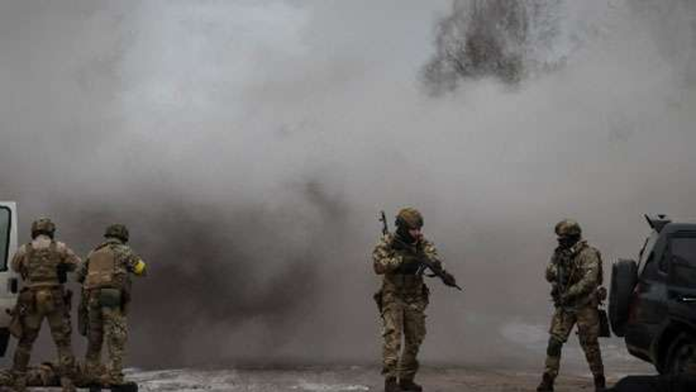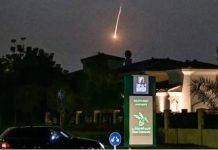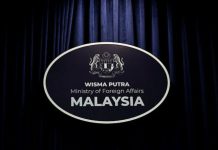UNITED NSTIONS, May 30 (APP/DNA):A glimmer of hope for peace that some diplomatic efforts in the Ukraine-Russia war had created has been overshadowed by a new intensification in hostilities, Pakistan told the United Nations Security Council on Thursday, warning that there is no military solution to the conflict.
“Despite the hopeful momentum generated by diplomatic initiatives — including UN Security Council Resolution 2774, ceasefire understandings, and negotiations facilitated by the U.S., Saudi Arabia, and Turkiye — we are alarmed by the recent reports of intensification of hostilities,” Ambassador Usman Jadoon, deputy permanent representative of Pakistan to the UN, told the 15-member Council.
Speaking in a debate on the situation in Ukraine, he said that Pakistan remains deeply concerned by the devastating humanitarian and security consequences of the conflict that has been raging for over 4 years.
The new escalation in the conflict, marked by increased attacks on civilians and civilian infrastructure, undermines the fragile progress achieved through painstaking diplomacy.
In this regard, Ambassador Jadoon underscored the need for protection of civilians and civilian infrastructure; asserting that military means cannot resolve this conflict, and that fragile foundation of peace laid down by the diplomatic efforts needs consolidation.
“We welcome the direct talks between the Russian Federation and Ukraine, including agreements on prisoner exchanges, as steps in the right direction,” the Pakistani envoy said, pointing out that these efforts were being overshadowed by the worsening situation on the ground.
“The parties must redouble their commitment to dialogue, building on the existing frameworks to achieve a durable ceasefire, leading to a lasting solution, he said, noting Russia’s offer to hold a second round of direct negotiations in Istanbul.
From the outset of the Russia-Ukraine conflict, Pakistan had advocated for an immediate de-escalation to prevent further loss of life; Urged all sides to follow meaningful negotiations, addressing mutual security concerns, within the framework of the UN Charter, and, Supported diplomacy, involving key regional and international stakeholders to pave the way for a just and lasting peace.
“Pakistan stands ready to support all efforts toward a peaceful resolution anchored in the principles of the UN Charter, international law, the relevant multilateral agreements, and which addresses the legitimate national security interests of all sides,” Ambassador Jadoon added.
Earlier, briefing the Security Council, Rosemary DiCarlo, UN Under-Secretary-General for Political and Peacebuilding Affairs, said, “The longer the war continues, the longer its regional and global impacts will be felt, and the more difficult it will be to find a peaceful resolution.”
She recalled the adoption of Security Council resolution 2774 in February – the first since Russia’s military intervention in Ukraine in 2022 – which sparked a sense of optimism for a diplomatic solution.
That has since been replaced by a sense of international frustration – and more suffering in Ukraine following the surge in attacks.
“The hope that the parties will be able to sit down and negotiate is still alive, but just barely,” Ms. DiCarlo warned.
The weekend’s escalation has been described as the largest wave of attacks, with record numbers of long-range missiles and drones killing and injuring dozens of civilians and damaging homes and infrastructure in Kyiv, Kharkiv, Odesa, Mykolaiv, and other cities.
Russian regions bordering Ukraine also reported civilian casualties and infrastructure damage. According to the Russian Ministry of Foreign Affairs, nine civilians were killed and 117 injured by Ukrainian strikes between 19 and 25 May, with a further 17 civilians killed and over 100 injured the week before.
“The United Nations is not able to verify these reports. However, if confirmed, these figures serve as a vivid reminder of the rising civilian toll of Russia’s full-scale invasion of Ukraine, most egregiously in Ukraine, but also increasingly in the Russian Federation itself,” Ms. DiCarlo said.
International humanitarian law strictly prohibits attacks against civilians and civilian infrastructure, she stressed.
“They are unacceptable and indefensible – wherever they occur – and must stop immediately.”
‘Every delay costs lives’
Lisa Doughten, Director for Financing at the UN Office for the Coordination of Humanitarian Affairs (OCHA), painted a dire picture on the ground.
Over 5,000 people – mostly from Kherson, Donetsk and Sumy regions – were newly displaced in the past week alone, adding to the 3.7 million already displaced across Ukraine. An estimated 1.5 million civilians in Russian-occupied areas remain largely cut off from humanitarian assistance.
Despite escalating challenges, humanitarian organizations – many of them local NGOs – continue to deliver food, water, hygiene kits and protection services.
However, only a quarter of the $2.6 billion needed for the 2025 humanitarian response plan has been funded, leaving aid workers struggling to meet rising needs.

















